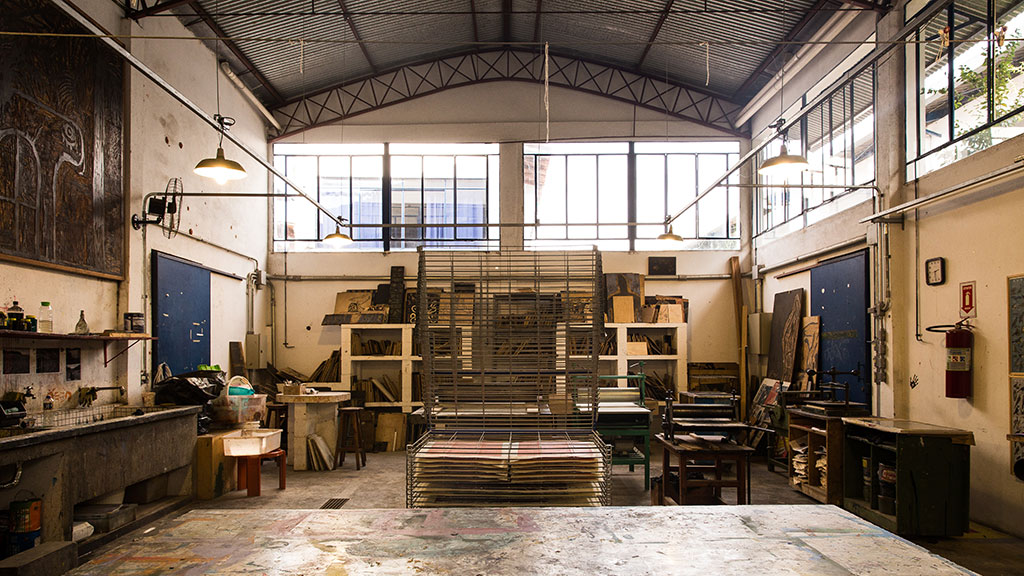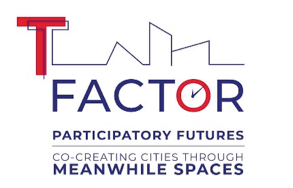Barcelona and Bilbao host one of six local pilots in eu research project on 'meanwhile spaces' and temporary urbanism in urban regeneration
T-factor, funded by the Horizon 2020 programme, will study advanced-stage cases in Barcelona, Dortmund, Florence, London, Lodz, Marseille, New York and ShanghaiThe project will put all acquired knowledge into practice in six local pilots in eu cities: Amsterdam, Bilbao, Kaunas, Lisbon, London and Milan
T-factor team includes universities, private developers, city officials and grassroots projects from 25 organisations and 12 countries
Bilbao Ekintza, Tecnalia and Espacio Open, local partners in the project, focused on the zorrotzaurre area

The European Commission is paying attention to new approaches for urban regeneration through the T-factor Project, a Horizon 2020 funded Innovation Action aimed at unlocking the transformative potential of ‘meanwhile spaces’ in urban regeneration. The project kicked off its first public meeting with global stakeholders this week.
Temporary and ‘meanwhile spaces’ are on the rise across Europe. More and more vacant buildings, plots and unutilized spaces are serving as temporary sites for co-creative experimentation, unlocking a multitude of innovative cultural, social and entrepreneurial activities. These initiatives typically contribute heavily to building a shared public value to rewire the social, cultural and economic fabrics of an area under regeneration. In many cases, they are well positioned to becom permanent fixtures of the local landscape, acting as prototypes of future neighborhoods and areas. The project calls these temporary initiatives ‘meanwhile spaces’.
The project consortium has created a coalition with cities, universities, businesses and grassroots organizations with 25 organisations from 12 countries, committed to contributing knowledge to the inclusive and thriving futures of cities and developing tools & approaches towards temporary urbanism and ‘meanwhile use’.
Years, and oftentimes decades, can go by between the approval process of a Masterplan to regenerate an urban area to its actual implementation. During these transitional times, a new generation of spaces to foster cultural, social, and entrepreneurial activities have become a determinant asset to adapt cities to the unknown.
The European Commission Horizon 2020 programme, one of the most important research funding tools in the European Union, is funding:
|
CITIES Camden Borough City of Lodz City of Dortmund Bilbao Ekintza ANCI Toscana City of Kaunas |
BUSINESSES Plus Value LAMA Agency Tecnalia LAND Italia Futuribile i-Propeller |
|
UNIVERSITIES University of the Arts London Aalborg University Tongji University Politecnico di Milano Universitat Oberta de Catalunya TU Dortmund University Università Statale di Milano Kaunas Technology University NOVA University Lisbon |
GRASSROOTS Friche la belle de Mai Waag Kaunas 2022 Espacio Open |
T-factor will research and put a set of tools, guidelines and local pilots into practice in order to extend the use of ‘meanwhile spaces’ and temporary urbanism across all European Union Cities. Throughout the next four years, project members will study many flagship advanced cases of Urban Regeneration to understand the role ‘meanwhile use’ spaces had and is having in these areas. Gathered knowledge and research will be put into practice in six European cities through the local pilots.
T-Factor’s Advanced Research studies some of the most innovative, effective, and forward-thinking examples of ‘meanwhile spaces’ in Europe and around the world to transform their stories into practical insights for public officials, private developers, and grassroots communities. The studied areas include:
• Dortmunder U, Dortmund
• La Friche Belle de Mai, Marseille
• Knowledge Quarter Kings Cross, London
• 22@Poblenou, Barcelona
• Manifattura Tabacchi, Florence
• EC1, Lodz
• Industry City, New York
• Red Town, Shanghai
T-Factor’s Local Pilots are the project’s proofs of concept, where the team will put the Advanced Research outcomes into practice in six early-development areas in the European Union. These include the following:
• Science Park in Amsterdam
• Zorrotzaurre in Bilbao
• Trafaria in Lisbon
• Aleksotas in Kaunas
• Mind in Milan
• Euston in London
This emerging practice will have an increased use throughout the following years to tackle the uncertainty of urban regeneration.
“Urban regeneration is challenged by the multiple crises we face. Climate change, rising inequality, democracy deficits, and labour disruptions are turning cities into engines of exclusion, eliminating the inclusive, participatory spaces that are so crucial for urban prosperity,” according to the project statement.
“Overly rigid top-down approaches to masterplanning have left yawning scars in our cityscapes: unfinished neighbourhoods, brand-new buildings standing empty, soulless districts that become monuments to the paradox of urban regeneration. Even when it appears successful on the surface, the process can hide the violent displacement of low and middle-income populations, a phenomenon that is most commonly known as ‘gentrification’. Cities need new models and tools that will allow them to keep pace with the complex, rapidly changing needs of our neighbourhoods. Urban regeneration is not only about the hardware of urban life but also the construction of new buildings and infrastructure. It is about rebuilding human connections and the social, economic and cultural aspects that makes cities thrive,” adds the team behind the project.
“The gaps left by infrastructure-only approaches to urban renewal have created some surprising opportunities. Vacant buildings, plots, and unused spaces have been filled by temporary, community-built cultural, social and entrepreneurial activities that have added collective animation to the city-making process. We want to turn ‘meanwhile spaces’ into a strategic field of action for deploying new ways to plan, design, fund, govern and regulate sustainable and thriving urban regeneration. T-factor ensures that cities, real estate developers, academics, and grassroots organisations are part of the same conversation.” the project team concludes.
T-factor in Numbers
• 25 partners spanning cities, universities, businesses and grassroots organisations developing a global community of practice for ‘meanwhile spaces’ in urban regeneration
• 12 between EU and extra-EU countries
• 6 early stage regeneration sites in 6 European cities (T-Factor’s Pilots), committed to creating innovative cultural and creative urban hubs
• 8 advanced cases of regeneration across Europe and beyond providing knowledge, expertise, and learnings about meanwhile strategies and approaches
• +€10 billion investment in the pilot sites
• +100 stakeholders engaged at pilot sites
This UOC research project supports Sustainable Development Goal (SDG) 11 - Make cities inclusive, safe, resilient and sustainable.


UOC R&I
The UOC's research and innovation (R&I) are helping 21st-century global societies to overcome pressing challenges by studying the interactions between ICT and human activity, with a specific focus on e-learning and e-health. Over 400 researchers and 50 research groups work among the University's seven faculties and two research centres: the Internet Interdisciplinary Institute (IN3) and the eHealth Center (eHC).
The United Nations' 2030 Agenda for Sustainable Development and open knowledge serve as strategic pillars for the UOC's teaching, research and innovation. More information:research.uoc.edu. #UOC25years
Experts UOC
Press contact
-
Editorial department
